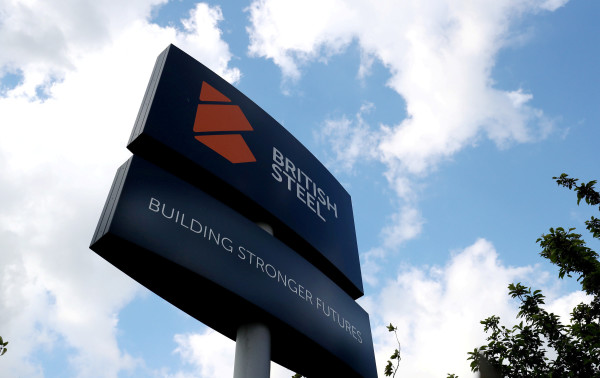

While this problem could affect every victim of DB transfer misadvice across the UK, the discrepancy has come to light because steelworkers at Port Talbot have been 'comparing notes' on the compensation levels they have received so far.
As a result, campaigners helping former British Steel Pension Scheme members to get redress have warned the way the methodology works means some people will win and some people will lose.
This is because redress is based on variable factors such as market performance and inflation indexation. These values will be different on the first business day of every quarter - the point at which calculations are made for the rest of the quarter.
For example, one steelworker, Mr G, aged 35, was given a £27,000 payout from the FSCS in September last year.
He had been advised to transfer out of the BSPS by S&M Hughes, trading as Crescent Financial, which went into administration in 2019, meaning all complaints fell back onto the FSCS.
But in January, a colleague of his, who is the same age, had been in BSPS approximately the same amount of time, and was also advised by S&M Hughes, received the full payout of £85,000 because his compensation was calculated after January 1 2021 - the first business day of the new quarter.
This means Mr G lost far more than 40 per cent of the potential maximum compensation.
Mr G said: "I emailed the FSCS to complain and they said it was because they had changed the calculation in January due to inflation indexation. The FSCS has said no to me getting any more.
"While I'm glad for my colleagues who are getting a better payout, I'm sad that my family are not going to benefit."
Al Rush, who is helping Mr G and many colleagues, warned the "arbitrary" calculation methodology meant a DB transfer victim getting compensation on December 27 could stand to lose 30-40 per cent of the potential pot, compared to someone who got compensation on January 3.
He called it a "lottery", adding: "Two guys living in the same street, having experienced very similar circumstances, feel they have been shafted once again by the system."
Rush added this problem was not confined to Port Talbot; it would affect everyone transferring out of any DB scheme and anticipating redress: Ford workers, NHS staff; anyone who is awaiting compensation.
He said: "It will cost billions to put right. There are tens of thousands of people’s retirements at stake."
A spokesperson for the FSCS said: "We perform DB pension calculations using actuarially-approved pension calculation software. In its simplest terms, our hypothetical value of the DB pension scheme benefits is broadly a ‘cash equivalent transfer value’.
"The quarterly assumptions set by the FCA influence the CETV due to the projected scheme benefits to the future retirement date and the discount factor, among other things.
"It is difficult to compare two steelworkers on a like-for-like basis given the different factors which go into the calculation when they are performed at different times. This is mainly due to the changes in the economic data assumptions every quarter. "
The FSCS added: "The FCA guidance gives prescribed methodology for things like the CPI indexation, pre-retirement discount rate, post-retirement discount rate, specific mortality tables and so on. This is why the inflation indexation will be different between the two steelworkers’ calculations."
The calculation
The redress methodology, which was proposed by the Financial Conduct Authority in 2020 and amended in March this year to reflect changes to the way the retail prices index inflation measure would be calculated from February 2030, bases compensation payouts on a number of measures.
These include using a predicted inflation rate derived from the Bank of England's inflation curve to 25 years, extrapolated to longer terms to maintain consistency with the post retirement gilt yields.
The calculations were outlined in its Finalised Guidance, where the FCA updated the CPI adjustment "without prior consultation" and backdated to November 25, 2020, but said in practice it would expect it to "apply only to calculations carried out from the first business day of the following quarter".
Back in 2019, the FSCS discussed proposals to change the way in which it reimbursed steelworkers. But, as reported, it was heavily criticised at the time, with commentators warning the parameters were too narrow and failed to take into account the steelworkers' full "transfer journey".
In May last year, as reported by FTAdviser, the FSCS said it would continue to review any "new and compelling evidence about the quantification methodology" it applied to its compensation, but insisted it was "vital" it remained consistent to be fair to all customers and levy payers.
FTAdviser reported in February that Fos was looking into 250 BSPS cases, and has answered consumers in more than 100 cases. Not all have gone to a final decision and some cases are now with the FSCS.
If the advice business involved went into administration, this limits the total compensation levels. For companies declared in default before April 2019, the maximum is £50,000 and £85,000 after April 1, 2019.
However, as Rush has revealed, the actual payouts for transfer victims - many of whom have lost out potentially more than £100,000 in the value of their pension, compared to what they would have received if they had transferred to the BSPS2 scheme - could be far less than the £85,000 maximum.
The FSCS explained CETVs can fluctuate as they are based on several factors including interest rates and inflation rates.
The FSCS said: "Our calculation methodology is not arbitrary or random. We are happy to provide the customer, who received £27,000 in September 2020, a full explanation of the differences between his and his ex-colleague’s calculations, if we receive written consent from both parties to share personal details."
simoney.kyriakou@ft.com



